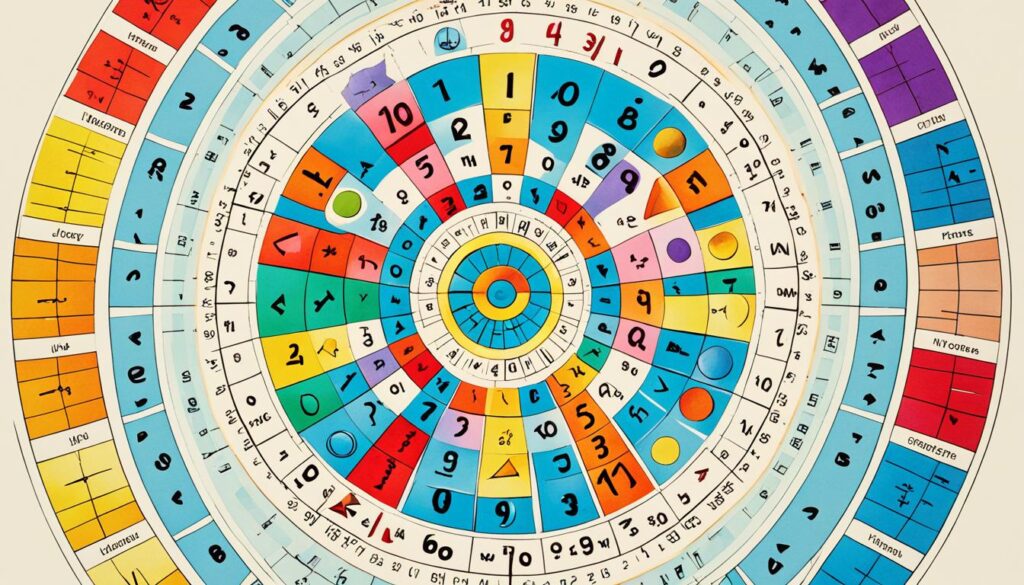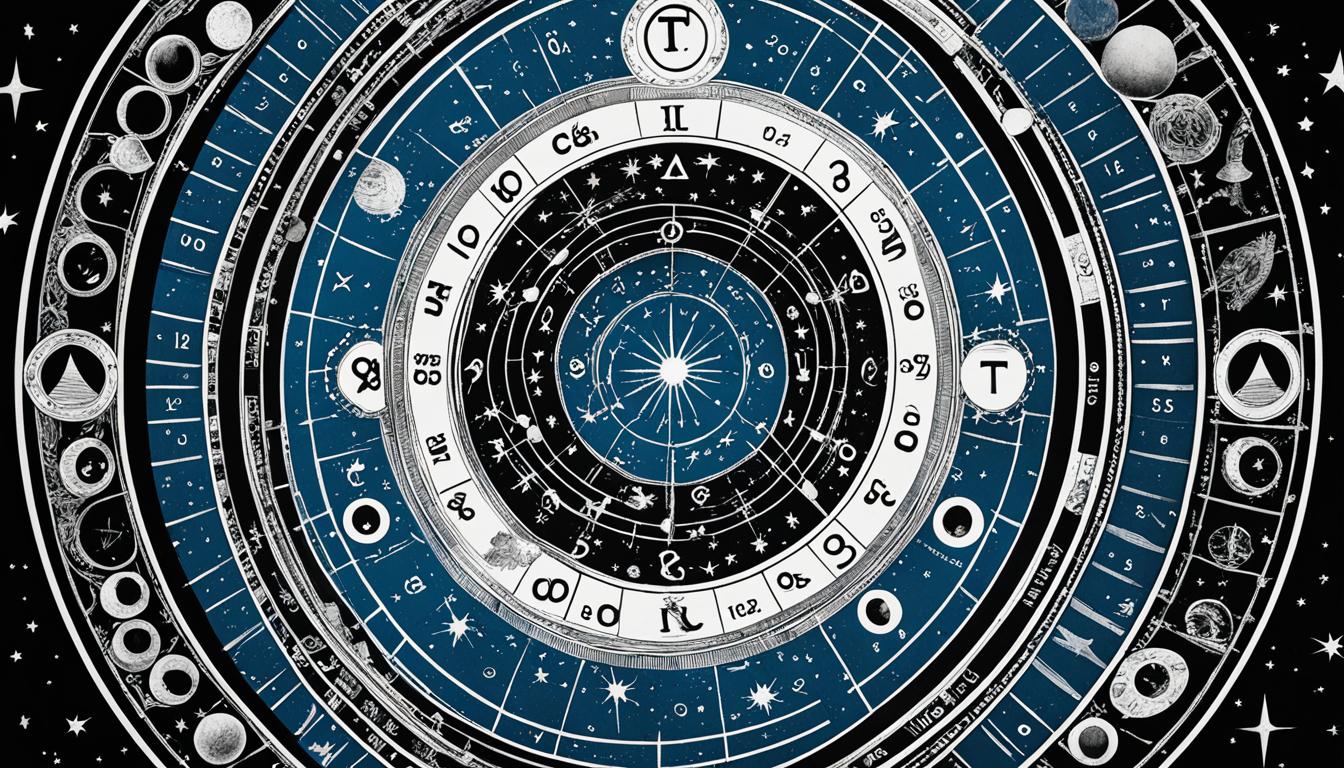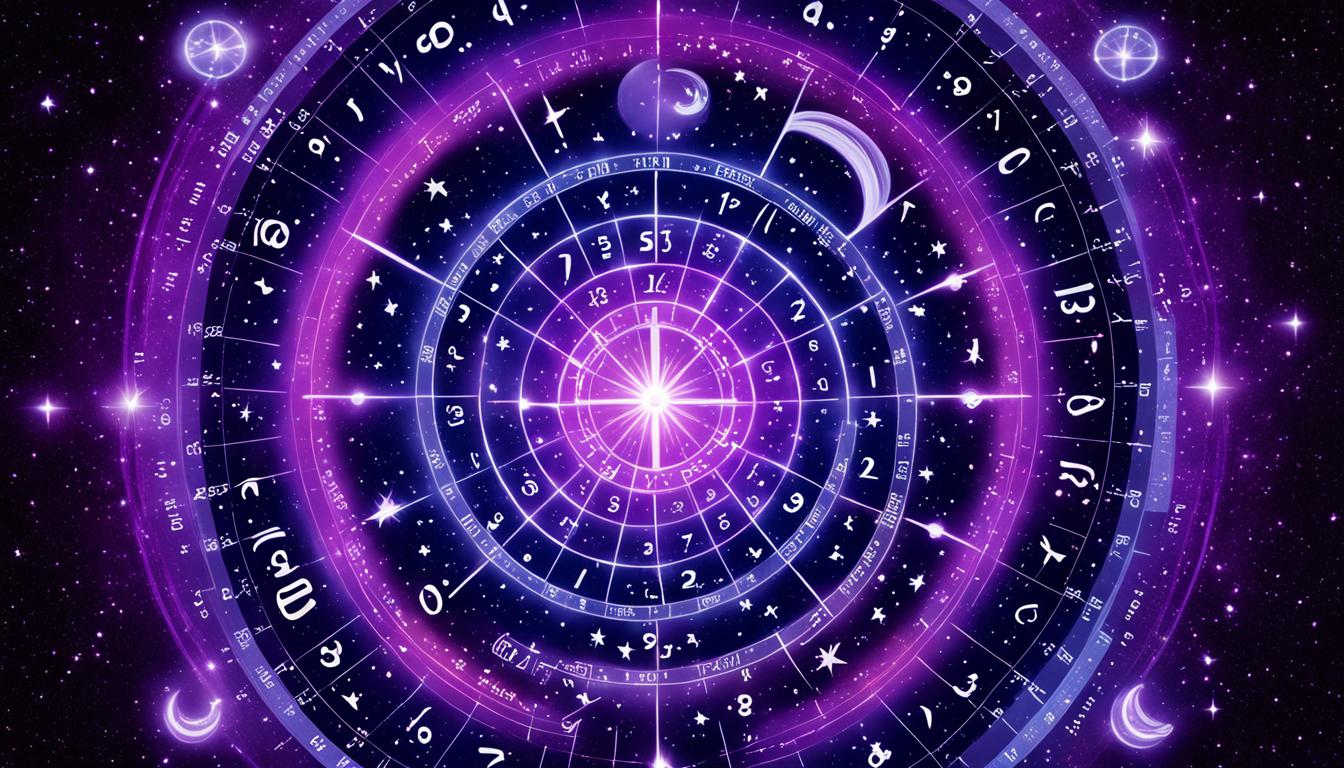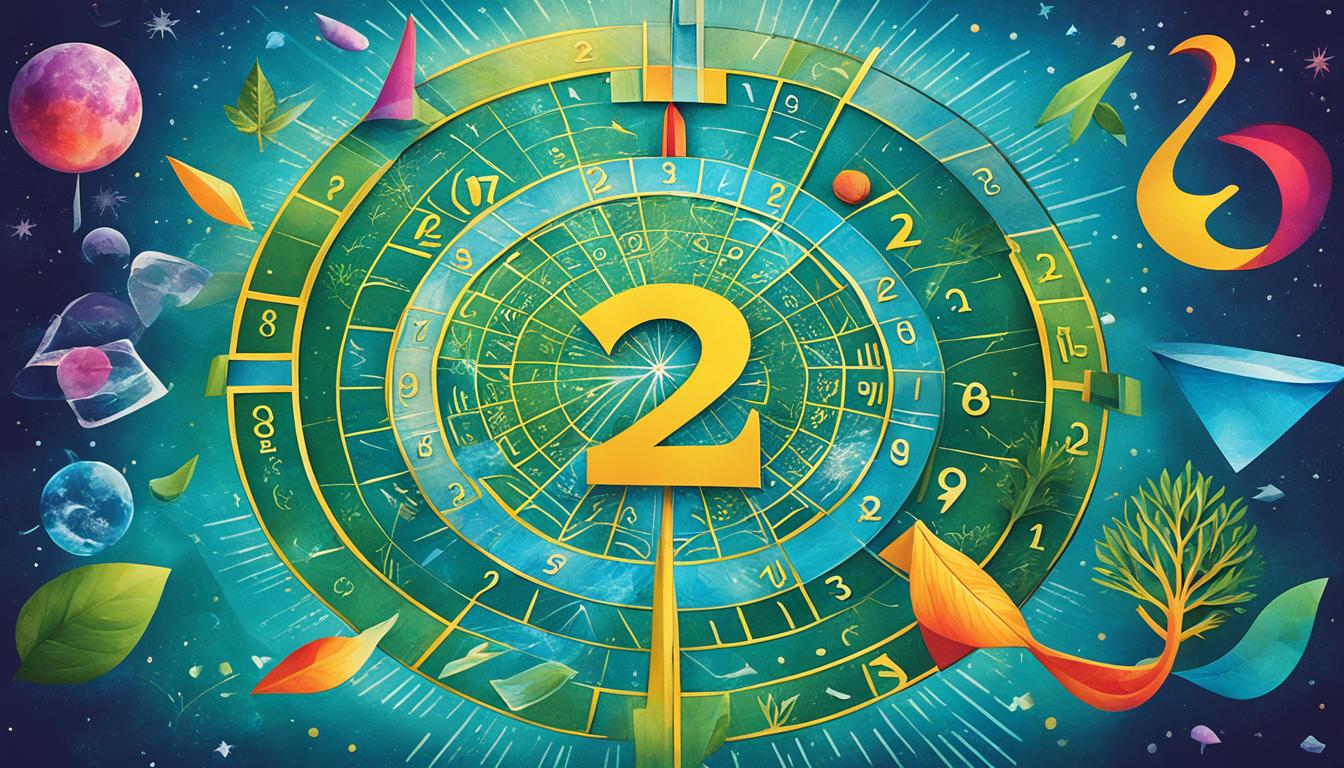Have you ever wondered about numerology’s beginnings? How did we start to interpret numbers’ meanings mystically? This journey of discovery takes us back to ancient times, where numerology started.
Picture yourself in ancient Babylon’s busy streets. You’re surrounded by tall ziggurats and lively markets. This is where the Chaldeans first explored the power of numbers. They thought numbers could unveil the universe’s secrets.
The Chaldean System of Numerology has deep roots in ancient Babylonia and Egypt. There, it was extensively researched and practiced. The Chaldeans connected numbers with cosmic forces to understand life better.
Numerology’s influence then spread to places like China, Rome, and Japan. Each civilization developed its unique way of interpreting numbers. This further enriched the study of numerology.
Jumping ahead, we find ourselves in ancient Greece with Pythagoras. He’s famous for his work in geometry and math. But he’s also the key figure in numerology’s history. Pythagoras laid down the fundamental principles of modern numerology.
Pythagoras believed numbers had deep meanings and vibrations. He taught that these figures could reveal truths about ourselves and the world. This laid the foundation for what’s now called Western numerology.
From its ancient roots, numerology has become a powerful tool for self-discovery. Today, we have various numerology systems. Chaldean, Kabbalah, Tamil, and Western/Pythagorean numerologies offer unique perspectives on life.
Next time you see a mysterious number pattern, think about the ancient origins of numerology. You’re joining a tradition started by visionary thinkers.
Key Takeaways:
- Numerology can be traced back to ancient civilizations such as Babylonia and Egypt.
- The Chaldean System of Numerology was one of the earliest forms of this practice.
- Pythagoras, the Greek philosopher, is considered the father of modern numerology.
- Numerology has evolved into various forms such as Chaldean, Kabbalah, Tamil, and Western/Pythagorean.
- Numbers hold intrinsic qualities and vibrations that can reveal profound truths.
The Influence of Pythagoras on Numerology
Pythagoras, a Greek philosopher, greatly influenced numerology‘s evolution. He taught that numbers reveal deep truths about everything. For Pythagoras, numbers were more than codes; they were keys to uncover truth.
Numerology faced doubts early on but grew in favor over time. Pythagorean numerology, or Western numerology, links numbers with letters. This approach is now the foundation for how we study numbers in modern times.
Pythagoras’ ideas were picked up by other greats like Plato. His work even shaped Roman society in profound ways.
Pythagorean Numerology in Action:
- Assign a number to each letter of the alphabet.
- These numbers are added to find the value of a word or name.
- This value is thought to uncover one’s inner self and future path.
- Used in various ways, including making personal or business choices clearer.
Pythagorean Numerology Chart:
| Letter | Value |
|---|---|
| A | 1 |
| B | 2 |
| C | 3 |
| D | 4 |
| E | 5 |
| F | 6 |
| G | 7 |
| H | 8 |
| I | 9 |
| J | 1 |
This chart guides how the rest of the alphabet is numbered. It allows us to see deeper meanings in names, words, and phrases through Pythagorean numerology.

The Origins of Chaldean Numerology and its Influence
Chaldean numerology started in ancient Mesopotamia, known as the cradle of civilization. The Chaldeans, living in Babylon, created a special system. They believed that numbers were closely linked to the universe’s energy.
Chaldean numerology saw numbers as tools to find, show, and explain things. It got deeply rooted in Chaldean culture. The Persians admired the Chaldeans’ expertise in math, astronomy, astrology, and the mystical. So they started to call people who studied these fields Chaldeans.
During this time, the first numerology system, Chaldean numerology, took form. It focused on how numbers’ energy connects with the universe’s creative power. It used letters to stand for numbers, setting the groundwork for today’s numerology.
The impact of Chaldean numerology has lasted over time. It affected how we understand numbers and their roles in life’s many parts. People still study Chaldean numerology today, carrying on its ancient tradition from Mesopotamia.
FAQ
Who founded numerology and what are its origins?
Numerology studies the special link between numbers and events. It began in ancient places like Babylonia and Egypt. Pythagoras, a Greek, is known as the father of modern numerology. This is because of his deep understanding of numbers.
How did Pythagoras influence numerology?
Pythagoras saw numbers as key to understand the world. He believed they showed the real truth. His work led to the Pythagorean numerology we use today. Even Plato, another philosopher in Greece, was inspired by Pythagoras.
What is the origin of Chaldean numerology and how did it influence numerology?
Chaldean numerology started in ancient Babylon, part of Mesopotamia. The Chaldeans tied numbers to the universe’s energy. They focused on the power of numbers and their links to universal creativity.
This system is why alphabets can be turned into numbers today. The Chaldeans were experts in math, the stars, and magic. They were so skilled that later, the Persians called anyone who studied with them “Chaldeans”. This is where the name Chaldean numerology comes from.



